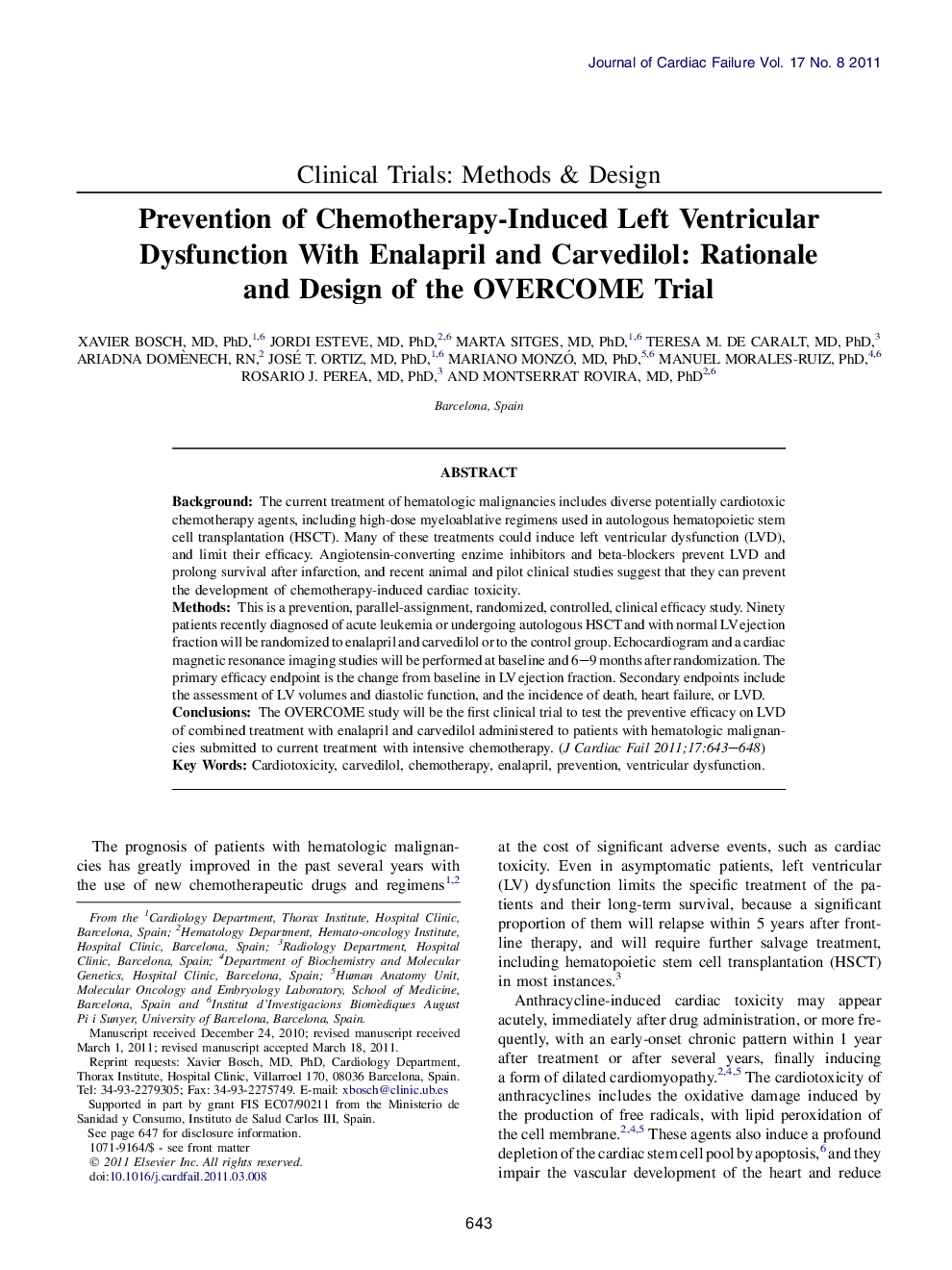| Article ID | Journal | Published Year | Pages | File Type |
|---|---|---|---|---|
| 5983856 | Journal of Cardiac Failure | 2011 | 6 Pages |
BackgroundThe current treatment of hematologic malignancies includes diverse potentially cardiotoxic chemotherapy agents, including high-dose myeloablative regimens used in autologous hematopoietic stem cell transplantation (HSCT). Many of these treatments could induce left ventricular dysfunction (LVD), and limit their efficacy. Angiotensin-converting enzime inhibitors and beta-blockers prevent LVD and prolong survival after infarction, and recent animal and pilot clinical studies suggest that they can prevent the development of chemotherapy-induced cardiac toxicity.MethodsThis is a prevention, parallel-assignment, randomized, controlled, clinical efficacy study. Ninety patients recently diagnosed of acute leukemia or undergoing autologous HSCT and with normal LV ejection fraction will be randomized to enalapril and carvedilol or to the control group. Echocardiogram and a cardiac magnetic resonance imaging studies will be performed at baseline and 6-9 months after randomization. The primary efficacy endpoint is the change from baseline in LV ejection fraction. Secondary endpoints include the assessment of LV volumes and diastolic function, and the incidence of death, heart failure, or LVD.ConclusionsThe OVERCOME study will be the first clinical trial to test the preventive efficacy on LVD of combined treatment with enalapril and carvedilol administered to patients with hematologic malignancies submitted to current treatment with intensive chemotherapy.
